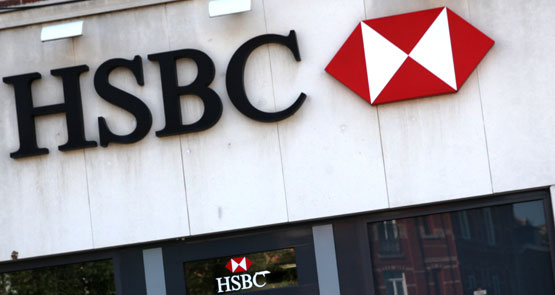
At the heart of the material available so far from the vast Panama Papers leak are a number of the world’s leading financial institutions, illustrating the extent to which international banking is the critical component of tax avoiders — both at the corporate and individual level — being able to exploit tax havens like Panama and others.
The material reported so far shows over 500 banks requesting Panamanian law firm Mossack Fonseca establish about 15,600 offshore companies. The biggest user of offshore companies was UK bank HSBC and its affiliates, which together requested more than 2300 companies. Swiss banks UBS and Credit Suisse were also big users of offshore companies.
HSBC insists the material is “historical”, “pre-dating our significant, well-publicised reforms implemented over the last few years”.
What’s well-publicised is that a Swiss arm of HSBC, HSBC Private Banking, was engaged in a vast international money-laundering and tax-evasion scheme up until early last year, when a whistleblower revealed the scale of the bank’s lawbreaking. Last year HSBC ‘fessed up, although it refused to admit it knew of any wrongdoing, and promised that it had made major changes to its operations and insisted it was committed to “the highest or most effective standards across the group to combat financial crime”. The British banking regulator washed its hands of the matter and HSBC was allowed to pay 40 million Swiss francs to avoid prosecution in Switzerland, although French authorities are still investigating, despite the bank trying to shut it down.
HSBC has been involved in worse than tax evasion, though: in 2012 it was revealed the bank’s subsidiaries dominated money-laundering by drug cartels in Mexico, helped drug lords buy assets, helped al-Qaeda-linked banks, and handled money for countries under sanction such as Syria and Iran. The bank apologised for its actions, with one departing executive demurely admitting, “HSBC has fallen short of our own expectations and the expectations of our regulators”. The bank paid US$2 billion to avoid prosecution, though it now faces a lawsuit in Texas from victims of drug cartels.
In 2014, Credit Suisse was fined US$2.5 billion for enabling tax evasion. Again, no one was prosecuted. “We deeply regret the past misconduct that led to this settlement,” the bank CEO said at the time.
In 2009, after a whistleblower revealed UBS’ involvement in tax evasion, UBS paid a US$780 million fine to settle a criminal prosecution in the US. Then-secretary of state Hillary Clinton, who was new to the job, negotiated with the Swiss government a compromise on US demands for a full list of UBS’ American clients, whereby the US would receive just a small fraction of the names demanded by the IRS. UBS subsequently became a large contributor to the Clinton Foundation.
The repeated pattern, if you missed it, was that these vast banks are able to negotiate deals to avoid criminal prosecution, even with the US government, even for crimes that go far beyond tax evasion and into the War on Drugs and the War on Terror. Individuals go to jail if they fund terrorism or help drug cartels. Banks pay fines and walk away, insisting that internal cultures have improved, better internal control mechanisms are in place, that things are much better now. And governments, it appears, are always ready to believe them.








Sort of connected, but what was the first action of the Obama administration? To bail out the banks and the perpetrators of the GFC.
It is the action/inaction of political elites colluding with foundational Institutions that ultimately will bring down democracy. For their greed and need to wield power insert cancers within both Parliament and the Electorate’s belief in a just system of governance.
The beginning of the end of democracy.
To the streets, citizens!
As noted in the editorial’s brief synopsis, it is the same-old, same-old who are shocked, shocked they tell ‘un to discover what they’ve been doing to earn their obscene profits.
And always promise this time we’ve fixed it, for which read “made it more difficult to be caught out.
Fortunately the Caymans are a short Lear jet hop from Panama.
Are these billion dollar fines a tariff – part of the cost of staying in that business?